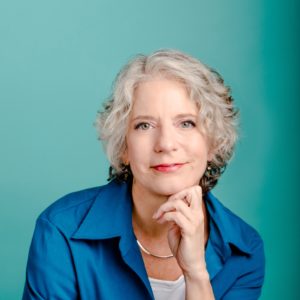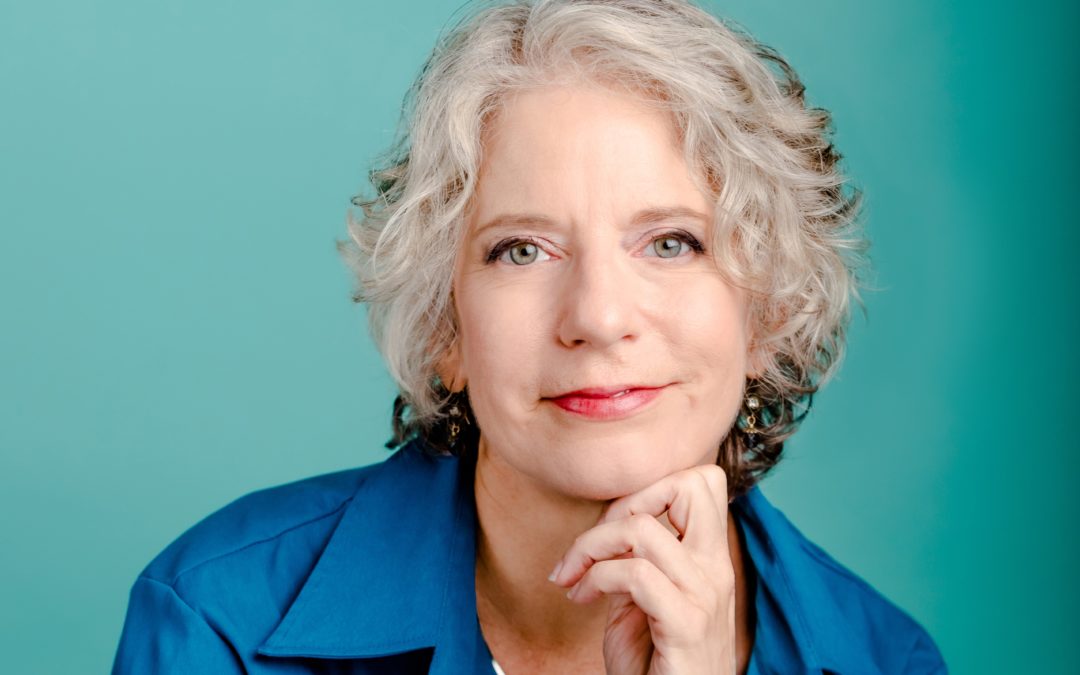Sonya Stattmannn’s Parting Words on Leadership
As we reluctantly say goodbye to personal development coach Sonya Stattmann, whose family is moving to Portugal, here is a recap from a fascinating online discussion she led on a recent Friday for Careers Over Coffee participants.
The gist of the conversation was sussing out the difference between how society traditionally defines leadership and the importance of women coming up with their own definitions. During the course of the discussion, I was among the participants who came to the realization that I should be taking a closer look at my personal definition, as I better understood all the wrinkles involved.

Author Barbra A. Rodriguez
Hierarchical Approach’s Drawbacks
Much of the focus was on how traditional (male) hierarchical approaches to leadership tap into a tendency to try make others do things instead of supporting others in bringing out their own gifts. As Stattmann noted, this traditional approach can be called “power over” others, instead of “power with.” The alternative approach she referred to as intrinsic leadership, which involves more equality, and inspiring people by who you are being instead of what you are doing.
A WCA member who holds a leadership position shared the example of how she steps out of a meeting once it’s clear that participants have a game plan developed, partly so team members know they are trusted with moving forward without her. I brought up a practice we do in the martial art that I train in (Aikido), in which the instructor and students bow to each other at the beginning of a class. Both say the Japanese phrase onegai shimasu while bowing, which translates as “please, let me train with you” or “please, teach me.” For while guiding others in understanding potential ways to approach a technique, the instructor deepens their own understanding of the art.
Stattmann pointed out that intrinsic leadership ultimately provides us with the “space to be real and unique,” because it is about leading by example by being our true selves. When several members noted their tendency to fill leadership vacuums because of fear that things would fall apart otherwise, she added that letting that happen is sometimes part of leading. Among the advantages of relaxing the “fixer upper” approach to leadership, for instance, was that it can force colleagues who don’t trust their own leadership skills to experience greater responsibility.
Stattmann likened it to the process of a caterpillar whose body literally dissolves inside a cocoon as it morphs into the form of a butterfly. Growth can be a removal process, she said, where we let go of things that no longer serve us. In the first of several one-on-one breakouts, she then invited us all to consider, Who are you being as a leader?
Hesitance in Stepping Up
Among the other breakout questions was whether attendees saw themselves as leaders. The struggles many of us noted about seeing ourselves in this light reminded me of what former presidential candidate and spiritual leader Marianne Williamson once said in her book, A Return to Love: “Our deepest fear is not that we are inadequate. Our deepest fear is that we are powerful beyond measure.”
Part of the challenge women face was noted to be the tendency for them to be pigeon-holed doing office housework tasks like arranging parties that don’t bring advancement opportunities. Stattmann reminded us that it’s still important to tap into nurturing capabilities that are important for effective leadership. To help attendees consider leadership steps more fully, she suggested we look at our leadership style. One attendee shared that she felt most comfortable leading when it came to assisting younger women, and how holding the role of a manager doesn’t always make one a leader.
To further this consideration, Stattmann presented the concept of people having two zones: one of excellence, and one of genius. The task-oriented focus of our culture often means we were told we were good at certain things while young, she said, but that that Zone of Excellence doesn’t necessarily nurture us. The focus involved in pursuing that kind of work can be exhausting as a result. Instead, she encouraged us to align our work with our Zone of Genius, with the things that take less out of us to do and feel effortless. To me, that fits with the concept of “feeding your soul,” which I write about related to topics such as how to align your focus and your values.
Regardless of leadership interest, she also encouraged members to look for how their own personal traits that are seen as faults can be strengths when honored. As an example, someone who is labeled “inconsistent” may simply be more in tune with their own body rhythms. That person can develop a life approach that allows them down time when needed, which would increase productivity in the long run.
To learn more about Stattmann and her work, visit www.sonyastattmannn.com.
Barbra A. Rodriguez
Barbra A. Rodriguez offers developmental, copyediting, and ghostwriting services for books, meeting reports and other long-form content. The St. Louis native also provides author and life coaching inspired by 20-plus years of experience in a mindfulness-related martial art called Aikido. https://www.vitalwordplay.com/
- Can I fire my client? - January 3, 2026
- How can I make time to work on new business development? - September 19, 2025
- How can I get the information I need out of a job interview? - August 14, 2025

